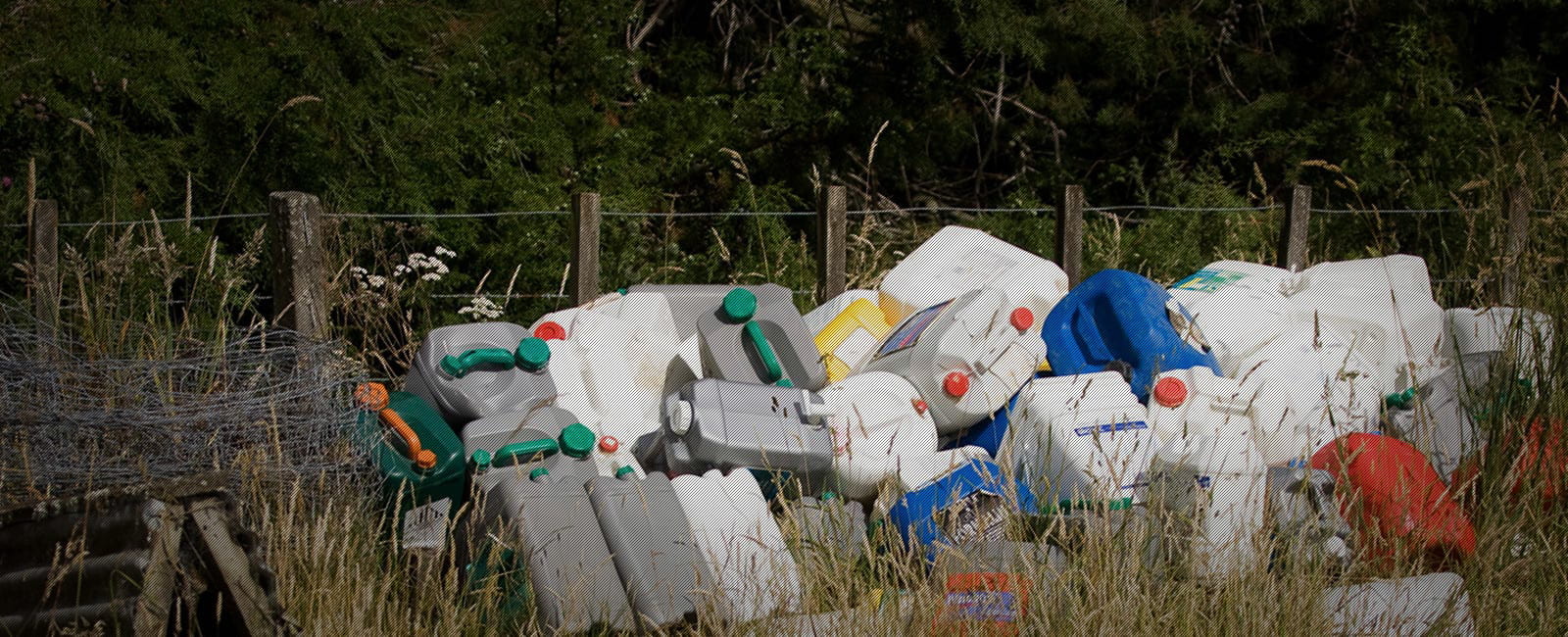Farms and agricultural properties can generate a lot of waste and traditionally the approach to dealing with this waste has involved the 3Bs – burning, burying or bulk storing. In surveys that took place in 2013 and 2014, almost all farmers admitted to using the 3Bs as a waste disposal strategy. The environmental consequences of these disposal methods meant that transformation across the sector was needed to support better practice.
To address problematic plastic waste issues on farms, two product stewardship schemes were developed in 2010. These schemes involve educating and supporting farmers to deal with plastic waste in a circular way. Agrecovery supports stewardship of plastic agrichemical containers and Plasback began supporting stewardship of plastic bale wrap, and has now expanded to various other plastic products used on farms.

Agrecovery estimate 1.2 million plastic agrichemical containers are sold every year in Aotearoa New Zealand. Source: Agrecovery.
These schemes have been effective because they have informed farmers about the environmental impacts of mismanaging waste, and then provided systems that enable farmers to then manage their waste in the right way. It is important to develop knowledge, but without structures or facilities such as rural modern landfills, transfer stations or resource recovery facilities in place to support better practice, it won’t lead to transformative change. Another strength is that the schemes have industry support resulting in no or reduced costs to farmers (the Agrecovery scheme is free for brand owners that participate, but Plasback charge at purchase and collection), removing a cost barrier for uptake and making it easy for people to engage in the new practice.
Testimonials from Agrecovery highlight how the programme has driven and supported the change in practice for users. These include:
- Educating people about caring for the environment: “Good environmental practices are important; we have to think about the next generation and the generation after that.”
- Providing the system to enable better practice: “When the programme became available we thought ‘yeah it is the right thing to do, we’ll use it’.”
- Making it simple and accessible: “Recycling with Agrecovery is a really simple process and just a no-brainer. You’ve got chemical containers that would be a problem and someone is offering to take them away. Why would you not do that?”
- Enabling a new habitual practice: “It is now becoming so important that we will move to only use chemical companies that do support Agrecovery.”
- Sharing their new knowledge and encouraging others to do the same: “As we move into the future the use of Agrecovery is certainly something that we will encourage and make our customers more aware of.”
These testimonials demonstrate that a better alternative for managing waste is available and when people understand the environmental consequences of waste mismanagement, they are willing to change their practices and adopt the new system. Though voluntary until now, there is quite high uptake of these schemes. Ideally uptake would be increased to near universal. If voluntary mechanisms are relied on, using accreditation and auditing by industry is a way to increase participation. The alternative approach is for government to declare one or both of the products involved as priority products and make stewardship mandatory, which is currently under consultation by the Ministry for the Environment.
